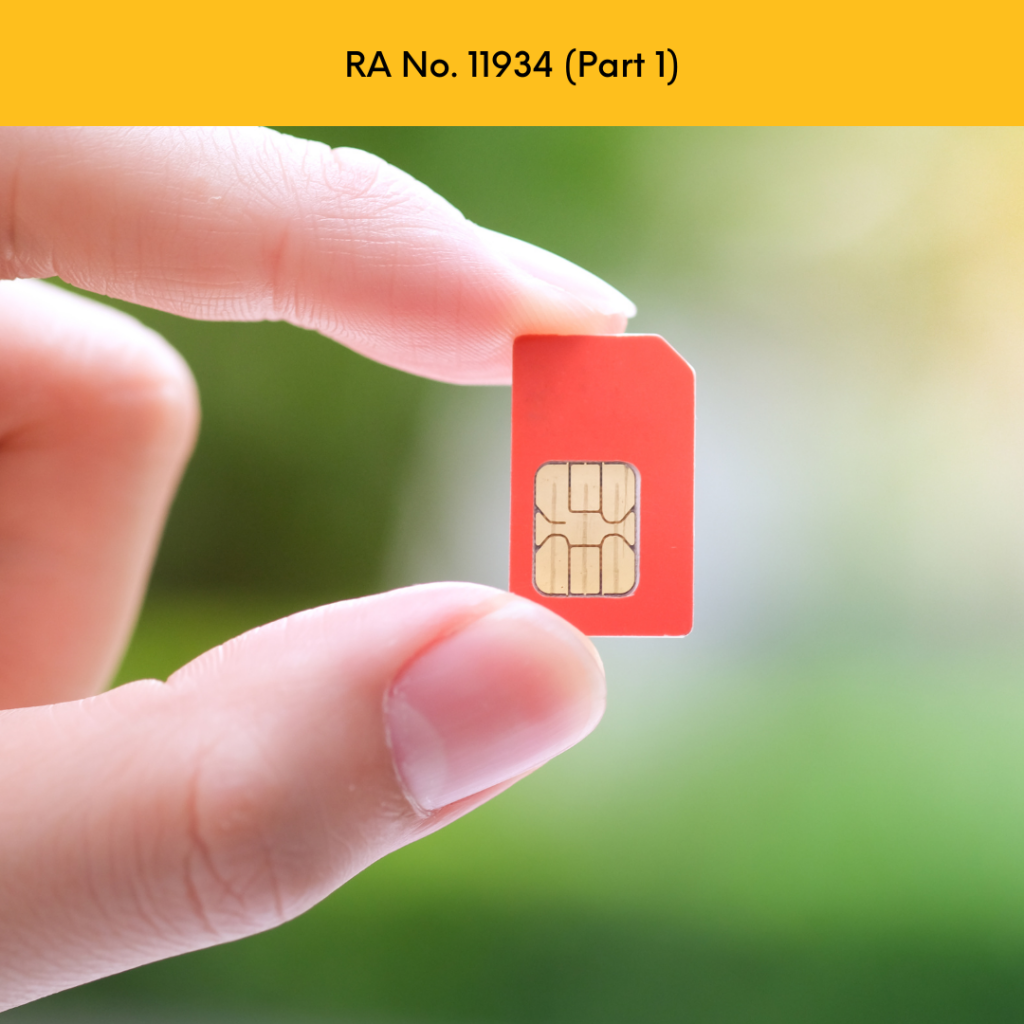
Published 17 October 2022, The Daily Tribune
Amidst the deluge of unsolicited junk messages and an alarming spike in telecommunications fraud, President Ferdinand “Bongbong” Marcos, Jr. signed Republic Act No. 11934, otherwise known as the “SIM Card Registration Act,” making this the first law to be enacted under his term.
The Act which mandates the registration of all Subscriber Identity Module aims to better equip law enforcement authorities in suppressing crimes committed with the use of electronic devices.
Earlier this year, former President Rodrigo Duterte vetoed a similar measure stating that the mandatory registration of social media accounts, in addition to SIMs, amounted to unconstitutional state intrusion and surveillance. The controversial provision, however, was removed under the new law.
With the enactment of this much-anticipated statute, what should end-users expect?
SIMs must be registered
A SIM contains a unique international mobile subscriber number used to identify and authenticate subscribers on mobile electronic devices. Under the Act, SIM shall include e-SIM and other variations thereof.
To regulate the registration and use of SIMs, Public Telecommunications Entities and their authorized resellers may only sell deactivated SIMs to be activated after the end-user completes the registration process. The sale or transfer of a registered SIM without complying with the required registration shall be penalized with six months to six years imprisonment or a fine of P100,000 to P300,000, or both.
On the other hand, existing subscribers are given 180 days from the effectivity of the law to register their SIMs with their respective PTEs. The Department of Information and Communications Technology may extend the period to not more than 120 days. Failure to register an existing SIM shall authorize the PTEs to automatically deactivate or retire the same.
PTEs shall implement the registration program at no cost to end-users
While the National Telecommunications Commission is mandated to promulgate specific guidelines for the implementation of the Act, the law already lays down minimum parameters for the registration process.
First, the full name, birth date, and address of the end-user shall be collected electronically through the PTEs’ platform or website. The end-users shall accomplish the registration form personally and shall attest to such fact. However, the registration of a SIM by a minor shall be under the name of the parent or guardian.
Second, end-users shall be required to submit valid government-issued IDs or similar documents to verify their identity. In the case of juridical entities, their certificates of registration must be presented together with a board resolution or special power of attorney designating their authorized representatives. End-users shall likewise attest to the truthfulness of such identification documents. The use of fictitious identities or fraudulent documents shall be penalized with six months to two years imprisonment or a fine of P100,000 to P300,000, or both.
On the other hand, tourists visiting the Philippines for 30 days or less may register their local SIMs by submitting their full name, passport number, and local address together with their valid passport and proof of address. Such local SIM shall only be valid for a limited period and shall be automatically deactivated thereafter. In contrast, foreigners staying for more than 30 days as workers or students shall, in addition to the foregoing, present their Alien Certificate of Registration Identification Card and Alien Employment Permit or school registration and identification card, whichever is applicable.
The law mandates the registration program to be implemented at no cost to the end-users. Any PTE who shall fail or refuse to register a SIM without valid reason despite the end-users compliance with the requirements shall be fined in such amounts as provided under the law.
(To be continued)
For more of Dean Nilo Divina’s legal tidbits, please visit www.divinalaw.com. For comments and questions, please send an email to cabdo@divinalaw.com.

